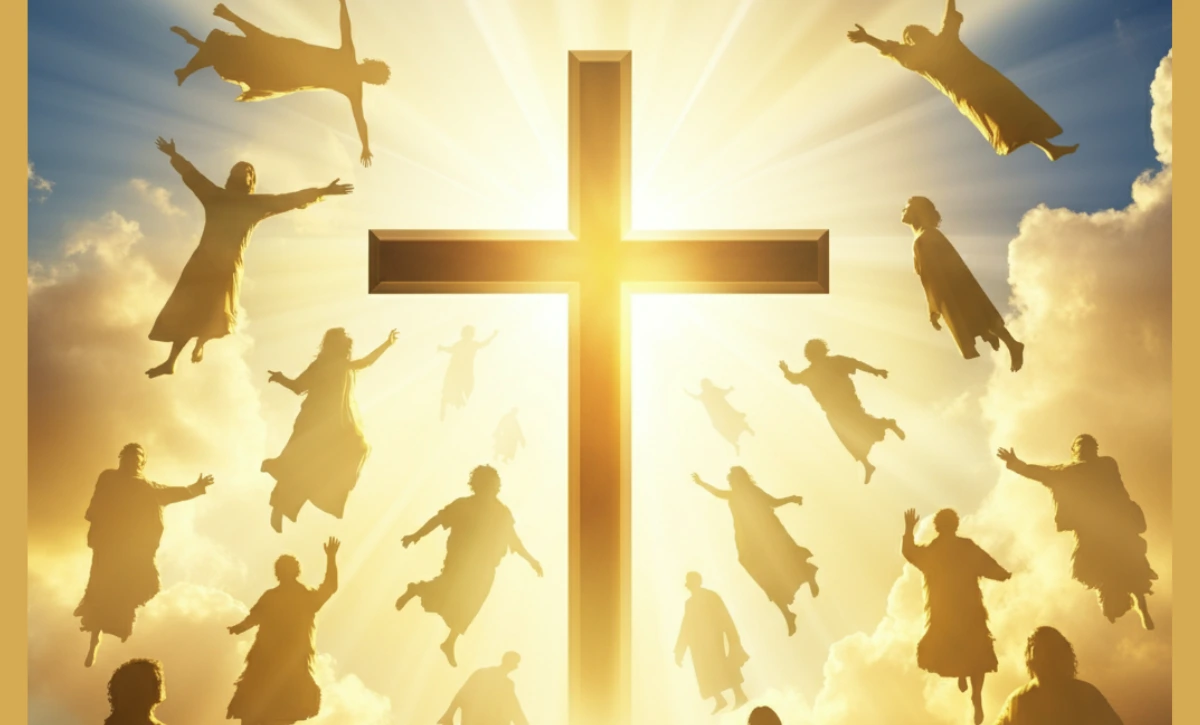For generations, the idea of the rapture has captured the hearts and imaginations of Christians across the United States. Discussions of the “Christians rapture” are common in Bible studies, church services, and even mainstream culture. While interpretations vary, countless believers find inspiration and hope in this teaching. In this article, we’ll break down what the rapture means for Christians, its scriptural foundations, main interpretations, and its ongoing impact on faith and daily life.
What Does the Christians Rapture Mean?
At its simplest, the Christians rapture describes a moment when, according to the Bible, Jesus Christ will return for His followers. This event, many say, will involve believers—both living and those who have died—being instantly gathered up to meet Jesus. The main scriptural basis is found in 1 Thessalonians 4:16-17, where Paul describes believers being “caught up… in the clouds to meet the Lord in the air.” The term “rapture” itself comes from the Latin “rapiemur,” which means “to be caught up.”
This belief is a source of comfort and reassurance for many, who look forward to the promise of being united with Jesus Christ and loved ones.
Interpretations of the Rapture: When Will It Happen?
Within the Christian community, there are several respected views on when the rapture might happen in relation to the “tribulation”—a predicted period of turmoil and worldwide hardship. These interpretations help shape how individuals experience the hope and anticipation tied to the Christians rapture.
Pre-Tribulation Rapture
- Believers are taken up before the tribulation
- This view is widespread in many American evangelical churches
- Seen as a way for Christians to avoid the coming period of suffering
Mid-Tribulation Rapture
- Suggests the rapture happens halfway through the tribulation
- Often based on specific biblical timelines
- Believers endure some hardship but are spared the worst
Post-Tribulation Rapture
- The church lives through the whole tribulation before being gathered
- Emphasizes faithfulness under trial until the very end
- The rapture and Christ’s return are closely linked
Key Teachings Related to the Rapture
Understanding the rapture in Christian beliefs means recognizing several associated teachings. Together, they create a big-picture view of what Christians expect for the future.
- The Tribulation: A seven-year period marked by global crisis and the rise of the Antichrist.
- The Second Coming: Jesus’s visible, triumphant return to Earth, bringing justice and peace.
- The Millennial Kingdom: Christ’s 1,000-year reign, often pictured as a time when the world is set right.
Each of these ideas helps believers place the Christians rapture within a broader spiritual timeline.
Why the Rapture Resonates with Christians
The Christians rapture isn’t just a theological point—it’s personal. Here’s why it matters deeply to so many:
- Hope for the Future: Believers find comfort in the promise of reunion with Jesus and those they’ve lost.
- Motivation to Live Well: The teaching inspires Christians to lead lives of faith, knowing Christ could return at any moment.
- Sharing the Message: Urgency around the rapture encourages outreach and sharing of the gospel.
For countless people, this belief gives daily life greater focus and meaning, shaping choices and perspectives.
How Did the Rapture Doctrine Develop in America?
Although rooted in early church teachings, the Christians rapture as commonly discussed today became widely popular in 19th-century America. John Nelson Darby and others helped spread dispensationalist theology, which distinguished the roles of Israel and the church and placed the rapture before tribulation. For a deeper dive into this history, you can read more at The Gospel Coalition: History of the Rapture Doctrine.
American Growth
- Bible conferences and traveling preachers in the U.S. helped the idea spread
- Study Bibles, such as the Scofield Reference Bible, became household names
Cultural Spotlight
- Books like “The Late, Great Planet Earth” and the “Left Behind” series brought the rapture—and the drama of end times—into mainstream entertainment
Ongoing Debate
- While many evangelical Protestants embrace pre-tribulation rapture ideas, others—including Roman Catholics, Orthodox Christians, and some mainline Protestants—see the relevant Bible passages differently and do not highlight a separate rapture experience.
You can find more historical context and perspectives on the rapture in resources like Christianity Today.
The Rapture in Daily Life: Hope and Watchfulness
Despite differences in interpretation, one fact remains: the Christians rapture is a powerful message of hope and anticipation. It reminds believers to stay ready and to live with purpose—always mindful that their faith has lasting significance both for today and for eternity.
Conclusion: Why the Christians Rapture Endures
From lively church discussions to popular media, the topic of the rapture continues to engage Christians throughout the USA. With its emphasis on hope, readiness, and the promise of being united with Christ, it is more than a doctrine—it’s an invitation to live with expectation and joy. As believers reflect on their own faith journeys, the Christians rapture serves as a compelling and enduring source of assurance for the future.
You may also read : Understanding the Schedule for September Social Security Payments
